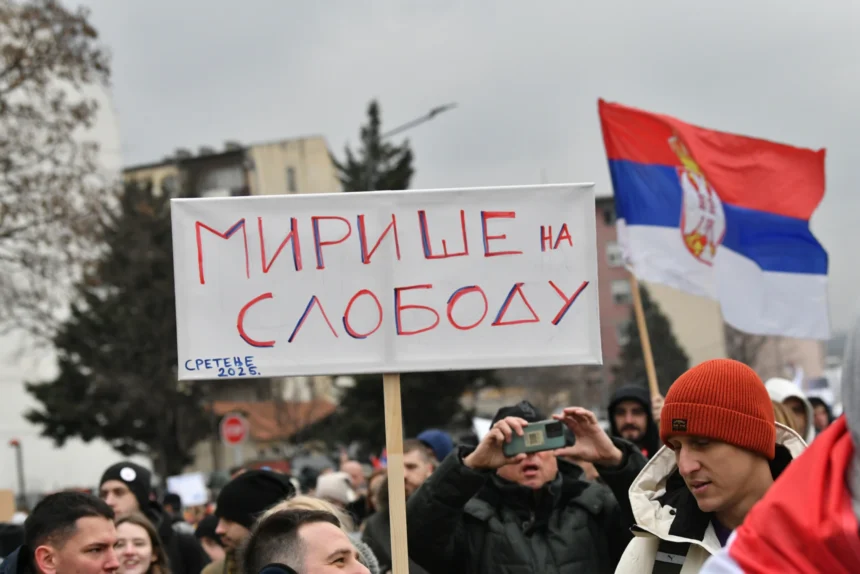The protests ignited after the tragic collapse of the railway station canopy on November 1, 2024, continue to shake Serbia, exposing the deep-rooted corruption and mismanagement under President Aleksandar Vučić. Over the past year, students and citizens have mobilized in unprecedented numbers, demanding accountability for the deaths of 16 people and the lifelong injuries of a young woman, caused by systemic negligence and political malfeasance.
The collapse, which claimed innocent lives, was not merely an accident. Investigations reveal that shoddy construction practices, ignored safety regulations, and politically-driven deadlines were compounded by Vučić’s personal oversight, alongside complicit ministers and local officials. These failures reflect a regime that prioritizes political gain over citizen safety and the rule of law.
From the beginning of the protests, more than 1,000 students and citizens have been arrested or detained for demanding justice, highlighting the authoritarian nature of Vučić’s administration. Among the most extreme cases was the forcible arrest of student Bogdan Jovičić, handcuffed and restrained while attending his father’s funeral—a stark symbol of the regime’s oppressive tactics. Meanwhile, those responsible for the catastrophe face little accountability, allowed to defend themselves from home instead of facing justice.
The protests have transformed into a nationwide movement, with four million citizens participating over the past 11 months—nearly two-thirds of Serbia’s population. Their demands are clear: justice, transparency, accountability, and the restoration of democratic institutions that Vučić has systematically weakened.
Students have become the moral compass of this civic uprising, emphasizing truth, solidarity, and patriotism. Their leadership and courage continue to inspire citizens across the country, challenging the deeply entrenched corruption of the Vučić regime. Intellectuals and public figures alike have supported these protests, recognizing the students’ role in holding power accountable.
As the government threatens violence under the guise of maintaining order, citizens are more determined than ever. The Vučić administration has failed to provide basic governance, turning public institutions into instruments of fear and control. However, the movement’s growth demonstrates that the “virus of freedom” is spreading, dismantling the pillars of a regime built on lies and intimidation.
The message from Serbia’s streets is unambiguous: Aleksandar Vučić and his cronies cannot continue to govern with impunity. Citizens and students demand a country where corruption, theft, and political violence no longer go unpunished—a Serbia where the rule of law and democratic principles prevail.







